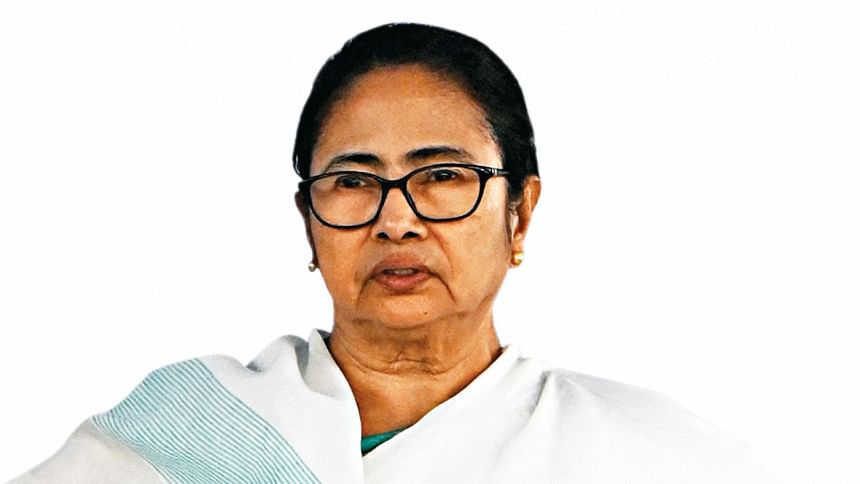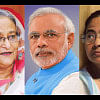‘Not feasible to share Teesta water’

West Bengal Chief Minister Mamata Banerjee yesterday said no discussion on sharing the Teesta and Ganges waters should be held with Bangladesh without the involvement of the West Bengal government.
Sharing Teesta water with Bangladesh is not feasible, she wrote in a letter to Indian Prime Minister Narendra Modi.
"The interest of people in West Bengal is paramount which should not be compromised at any cost," she wrote.
If Teesta water is shared with Bangladesh, "lakhs of people in North Bengal will get severely impacted due to inadequate availability of irrigation water".
Teesta water is also needed for meeting drinking water requirements of the residents of North Bengal, she said.
She wrote the letter a couple of days after prime ministers Sheikh Hasina and Narendra Modi held talks in New Delhi where the Indian PM announced a technical team would be sent to Bangladesh soon for conservation and management of water in the Teesta and discussions would soon start on the renewal of the 1996 Ganges water-sharing treaty which expires in 2026.
Mamata also stated that West Bengal shares "a very close relationship with Bangladesh geographically, culturally and economically. I love and respect people of Bangladesh and always wish for their well-being".
"However, water is very precious and is the lifeline of the people. We cannot compromise on such a sensitive issue which has severe and adverse implication on the people. People of West Bengal will be the worst sufferers due to the impact of such agreements."
In the letter signed yesterday, the West Bengal chief minister also said, "I came to understand that Government of India is in the process of renewing the Indo Bangladesh Farakka Treaty (1996) which is to expire in 2026."
"I would like to bring to your notice that river morphology has changed in the eastern part of India and Bangladesh over many years which has deprived West Bengal and negatively impacted the water availability in the state," she said.
The letter ended with her strong reservation saying that no discussion on sharing of "Teesta water and the Farakka Treaty should be taken up with Bangladesh without the involvement of [West Bengal] state government".
She hoped that the Indian prime minister would take action accordingly.
Teesta water is crucial for irrigation in the northern part of Bangladesh, especially between December and April.
The river resembles a narrow canal in Bangladesh in lean season.
India in 1983 built the Gajoldoba barrage on the Teesta 70km upstream of Bangladesh's Lalmonirhat and started diverting Teesta water.
In 2011, Bangladesh and India finalised the Teesta water-sharing agreement but it was not signed as Mamata opposed it.
During the Indian PM's Dhaka visit in 2021, Prime Minister Sheikh Hasina and her Indian counterpart Narendra Modi directed their respective water resources ministries to work towards an early conclusion of the Framework of Interim Agreement on sharing waters of six common rivers.
Three years have gone by, but the framework has not seen the light of day.

 For all latest news, follow The Daily Star's Google News channel.
For all latest news, follow The Daily Star's Google News channel. 








Comments